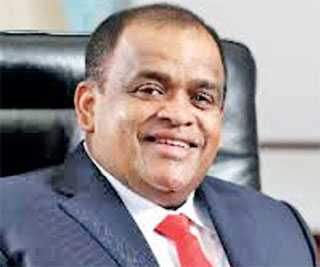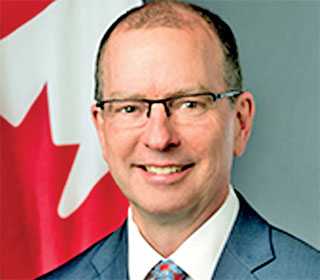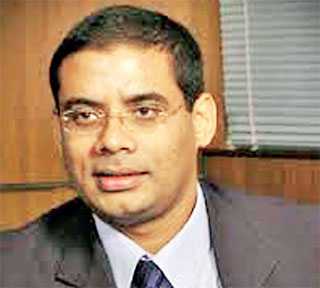Wednesday Feb 25, 2026
Wednesday Feb 25, 2026
Wednesday, 8 May 2019 00:00 - - {{hitsCtrl.values.hits}}
The National Human Resources Development Council of Sri Lanka (NHRDC) together with the Institute of Chartered Accountants of Sri Lanka (ICASL), Chartered Institute of Personnel Management (CIPM), the International Chamber of Commerce of Sri Lanka (ICC), Sri Lanka Institute of Tourism and Hotel Management (SLITHM) and Daily Financial Times has organised a seminar to discuss the fundamental changes the vocational education sector in Sri Lanka requires for the country to be competitive in a tight labour market characterised by low unemployment, relatively high underemployment, and a high proportion of employment in elementary occupations.
 |
Dhammika Perera – Chief Guest |
 |
Canadian High Commissioner David McKinnon – keynote speaker |
 |
Dinesh Weerakkody – Moderator |
It is estimated around 1.5 million Sri Lankans are in employment overseas, mostly as unskilled workers. It is imperative for the Government to train the workers and develop their skills in order to match available opportunities both here and overseas – more so in Sri Lanka than overseas. The challenge TVET has is to impart skills to the workforce as quickly as possible to fill the gap in the workforce. Given this background, and in consideration of the increasingly competitive nature of the global and local markets to improve the technical and vocational skills of the labour force, TVET providers need to be very innovative and more oriented towards industry demand.
In Sri Lanka, TVET comprises public, private, and nongovernment providers. The public sector continues to be the dominant player, with the Tertiary and Vocational Education Commission (TVEC) serving as the sector’s apex body. The TVET sector operates through a nationwide training service network with an annual enrolment around 200,000 students.
Public TVET service providers account for 71% of the total enrolment compared with the private sector (19%) and NGOs (10%). Public expenditure for TVET was about Rs. 10.6 billion in 2017. However, according to an ADB report in 2015, about 28% of the unemployed having TVET training did not process right skills for the right job revealing a skills-jobs mismatch and a shortage of talent.
This seminar will be held on 21 May at 2:30 p.m. at the Auditorium of the Institute of Chartered Accountants of Sri Lanka, 30A, Malalasekara Mw, Colombo 7.
Dhammika Perera will grace the event as the Chief Guest and High Commissioner for Canada in Sri Lanka David McKinnon will be the Guest of Honour and the keynote speaker.
The event will be followed by a panel discussion. National Human Resources Development Council of Sri Lanka and International Chamber of Commerce Chairman Dinesh Weerakkody will moderate the panel discussion.
The panellists are:
Vallibel One PLC Chairman Dhammika Perera
The High Commissioner to Canada David McKinnon
The Institute of Chartered Accountants of Sri Lanka President Jagath Perera
Chartered Institute of Personnel Management President Dhammika Fernando
NHRDC and ICC Chairman Dinesh Weerakkody (Moderator)